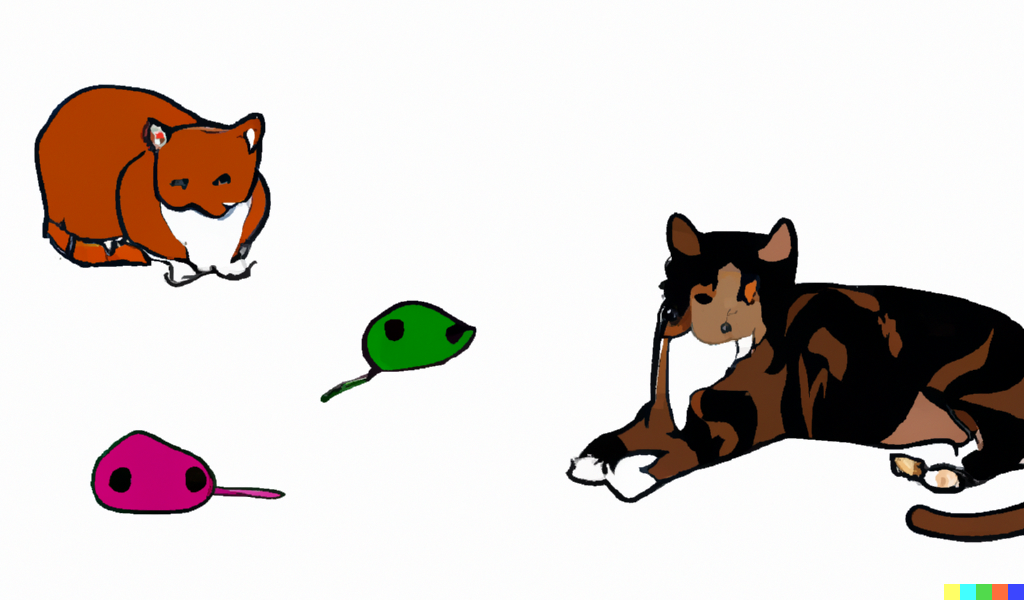Total Probability: Squeaking by the Fourth Principle with Our Feline Trio
As we progress through Laplace’s principles of probability, it’s time to examine the fourth principle. In this post, we’ll maintain our feline-themed exploration, using Cool Ranch Dorito, Boggy P, and Garbage Disposal as examples to ensure a fun and engaging learning experience.

Laplace’s Fourth Principle of Probability: Total Probability
Laplace’s fourth principle, the principle of total probability, is used to calculate the probability of an event by considering all possible ways the event can occur. This principle is especially useful when dealing with situations that involve multiple sources of uncertainty.
Let’s illustrate this principle with a quirky example involving our beloved cats, Cool Ranch Dorito, Boggy P, and Garbage Disposal. Suppose each cat has a separate stash of toys, and you want to find the probability of randomly picking a specific toy—a green mouse—without knowing which cat’s stash you’re picking from. The probabilities for each cat’s stash are as follows:
- Cool Ranch Dorito: 20% chance of selecting a green mouse
- Boggy P: 30% chance of selecting a green mouse
- Garbage Disposal: 50% chance of selecting a green mouse
Additionally, there is an equal chance (1/3) of selecting from each cat’s stash.
To find the overall probability of picking a green mouse, we apply Laplace’s fourth principle by considering each cat’s stash separately:
P(green mouse) = P(green mouse from Cool Ranch Dorito) + P(green mouse from Boggy P) + P(green mouse from Garbage Disposal) = P(green mouse|Cool Ranch Dorito) * P(Cool Ranch Dorito) + P(green mouse|Boggy P) * P(Boggy P) + P(green mouse|Garbage Disposal) * P(Garbage Disposal) = 0.2 * (1/3) + 0.3 * (1/3) + 0.5 * (1/3) ≈ 0.333
Thus, there is approximately a 33.3% chance of randomly picking a green mouse from the combined stashes of Cool Ranch Dorito, Boggy P, and Garbage Disposal.
Up Next: The Fifth Principle of Probability
Stay tuned for our upcoming post, where we’ll continue our journey through Laplace’s principles of probability. We’ll tackle the fifth principle, providing a comprehensive and entertaining exploration of its significance in modern probability theory and statistical applications.

